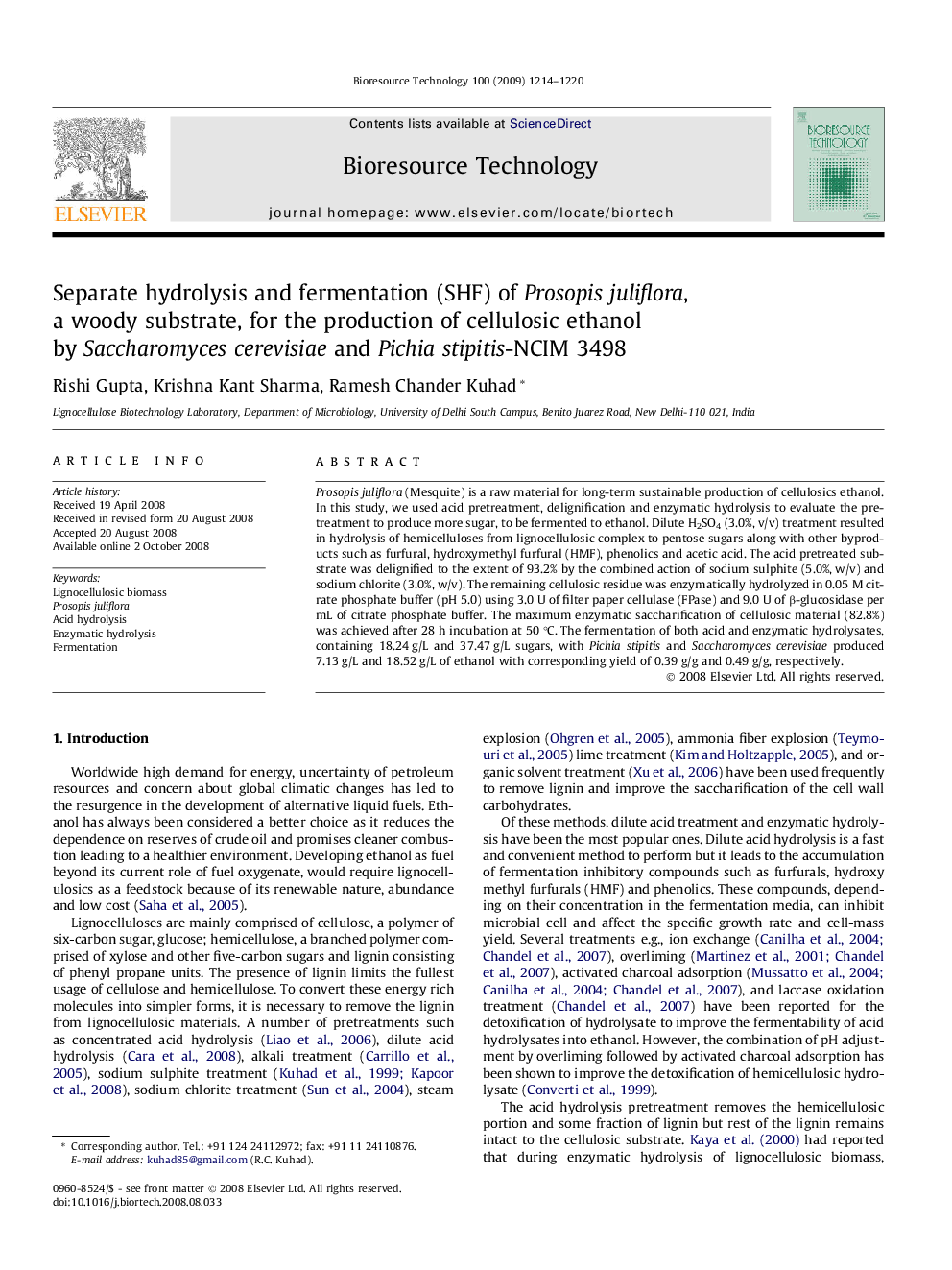| کد مقاله | کد نشریه | سال انتشار | مقاله انگلیسی | نسخه تمام متن |
|---|---|---|---|---|
| 686113 | 889062 | 2009 | 7 صفحه PDF | دانلود رایگان |

Prosopis juliflora (Mesquite) is a raw material for long-term sustainable production of cellulosics ethanol. In this study, we used acid pretreatment, delignification and enzymatic hydrolysis to evaluate the pretreatment to produce more sugar, to be fermented to ethanol. Dilute H2SO4 (3.0%, v/v) treatment resulted in hydrolysis of hemicelluloses from lignocellulosic complex to pentose sugars along with other byproducts such as furfural, hydroxymethyl furfural (HMF), phenolics and acetic acid. The acid pretreated substrate was delignified to the extent of 93.2% by the combined action of sodium sulphite (5.0%, w/v) and sodium chlorite (3.0%, w/v). The remaining cellulosic residue was enzymatically hydrolyzed in 0.05 M citrate phosphate buffer (pH 5.0) using 3.0 U of filter paper cellulase (FPase) and 9.0 U of β-glucosidase per mL of citrate phosphate buffer. The maximum enzymatic saccharification of cellulosic material (82.8%) was achieved after 28 h incubation at 50 °C. The fermentation of both acid and enzymatic hydrolysates, containing 18.24 g/L and 37.47 g/L sugars, with Pichia stipitis and Saccharomyces cerevisiae produced 7.13 g/L and 18.52 g/L of ethanol with corresponding yield of 0.39 g/g and 0.49 g/g, respectively.
Journal: Bioresource Technology - Volume 100, Issue 3, February 2009, Pages 1214–1220